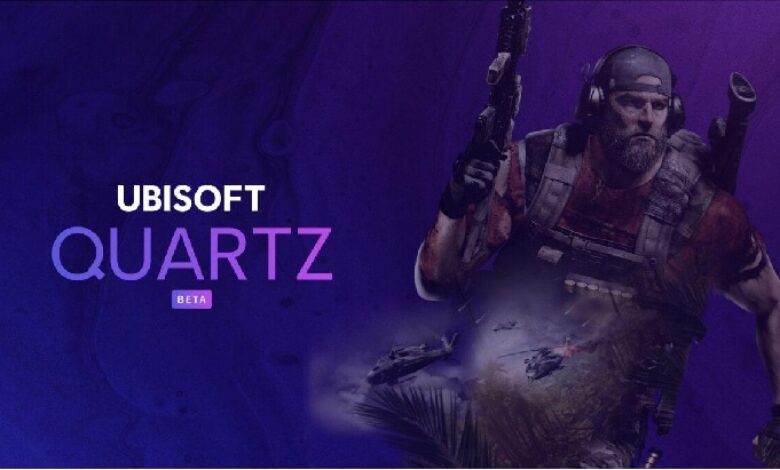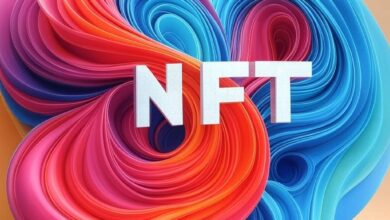Aleph and Ubisoft team up to introduce NFTs to gaming

Aleph.im and Ubisoft have teamed up to introduce nonfungible tokens (NFTs) to triple-A titles like Tom Clancy’s Ghost Recon: Breakpoint. Aleph.im is cross-blockchain decentralized storage and compute network that provides decentralized storage for dynamic NFTs on Ubisoft Quartz, the company’s new blockchain-based platform. Aleph.im provides its users with a distributed cloud platform that includes cloud-based trustworthy computing, file storage, and database hosting.
How will NFT work out in this collaboration? Digits on Quartz, a dynamic NFT that will be used in Ubisoft’s Ghost Recon: Breakpoint, will be available to players. Players will be able to claim playable NFTs that represent in-game assets such as guns, equipment, and more for the first time in a commercial video game.

These Digits are intended to be used in-game, but they also allow users to sell them on Rarible and Objkt for other eligible players to purchase.
NFTs have taken off in 2021 as fashion designers, artists, and game companies have begun using them as new ways for monetizing things such as digital collectibles. But they have also gotten a lot of pushback from gamers as well for a variety of reasons, so NFT gaming is still a discussion.
In his interview with GameBeat, Didier Genevois, blockchain technical director at Ubisoft, said the following about the pushback:
“We have received a lot of feedback since the announcement, and we hear both the encouragement and the concerns. We understand where the sentiment towards the technology comes from, and we need to keep considering it every step of the way. This experiment is meant to understand how the value proposition of decentralization can be received and embraced by our players. ”
Genevois continued,
“We know it is a major change that will take time, but we will stay true to our three principles which are: use the tech responsibly: building a safe environment for players to get acquainted with these new possibilities; only leverage energy-efficient, proof-of-stake blockchains; and focus on meaningful value propositions for players that benefit their gaming experience.”
Video game developers have become more invested in blockchain gaming as a strategy to provide their players with more ways to interact with their favorite games as the industry continues to grow. Players can truly own and trade their assets in blockchain gaming with integrated NFTs. It also allows game developers to make more money from the same titles.
As a technology partner, Aleph.im will offer a decentralized storage solution for Ubisoft Quartz. The NFT metadata will be stored on Aleph.im’s fully decentralized storage system of over 70 nodes, while all NFT ownership will be tracked on the Tezos blockchain.
Aleph.im will be able to securely store and generate metadata for these NFTs through its microVMs, including current and past owners’ identities, item descriptions, and video of the object in use. This will also make it possible for anyone to verify the item metadata’s history in a secure manner, which will be extremely useful for Rarible and Objkt.
Jonathan Schemoul, CEO of Aleph.im said:
“The incorporation of NFTs into a mainstream game is a revolutionary moment for NFTs. Dynamic NFTs have never been done before and this marks the first time NFTs will evolve as various players use them in-game. Aleph.im is proud to be at the forefront of this new era where blockchain technology and decentralized solutions for NFTs play a pivotal role in traditional gaming.”
The companies said that by eliminating dependence on centralized entities, NFT-backed digital assets become more efficient, secure, and private, making them harder to hack and get cyber-attacked.
While traditional NFTs have been mostly static and won’t change attributes based on each ownership transfer, Aleph.im changed the game by enabling the creation of dynamic NFTs with metadata that evolves as they transfer from player to player.
Aleph.im’s technology will allow players to see information on which players have previously owned the items they have retrieved, including player names and achievements.
Genevois said:
“With Ubisoft Quartz, we’re taking the first step to leverage blockchain’s decentralized approach to open new opportunities for our players by making them true stakeholders of our games. To fulfill the technology’s promise, we needed players to own their Digit and be able to leave their mark in their favorite game. Aleph.im’s role was key in building this experiment by allowing us to decentralize the storage of the Digits’ video asset and metadata.”
Ubisoft has worked on this blockchain technology for four years through in-house research and development. Close collaboration with renowned specialists was made for the sake of the development within the start-up ecosystem. Earlier this year, Ubisoft established a core channel node on the Aleph.im decentralized computer network, as the decentralized storage of the valuable metadata appears to Ubisoft as a determining factor to enable blockchain to fulfil its promise.




